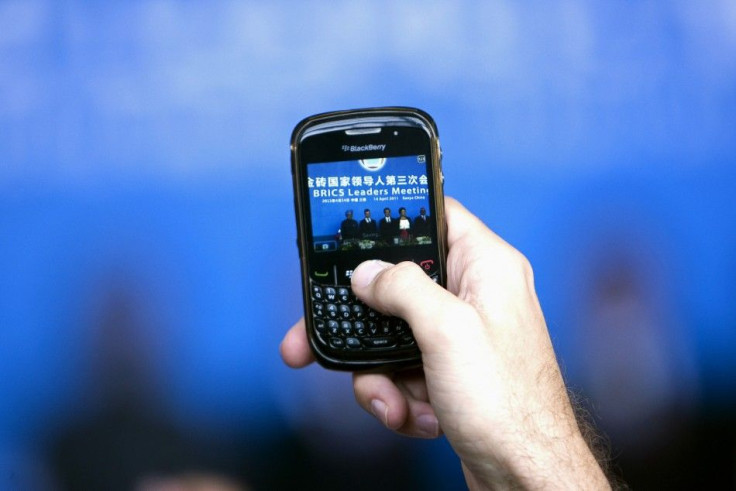RIM's BlackBerry Dying a Million Deaths?

A recent report from ComScore cited some interesting figures detailing how Apple's iPhone and Android devices are beating the BlackBerry.
ComScore averages the U.S. market-share figure for three months between February to May 2011. The figure states that Android is leading the game, having increased its market share from 33 percent in February to 38 percent in May.
Apple also increased its market share one point, to 26 percent from 25. However, the greatest disappointment came from the RIM quarter as the BlackBerry maker reduced its market share from 28 to 24 percent.
Other companies that followed RIM's debacle include Microsoft and Palm, which also lost market share from 7.7 percent to 5.8 percent and from 2.8 percent to 2.4 percent, respectively.
Google's Android added over 6 million users over a three-month period, while Apple registered 3 million users. RIM lost one million users during the period.
Also Samsung remained the top handset make in the U.S. with 24.8 percent market share.
The total number of smartphone users over a three month period in US stands at 74 million.
RIM has been consistently losing market share. Recently, Google's senior vice president of mobile technology said that 500,000 Android devices are activated each day. Such numbers are sure to dent RIM's chances.
However, the Android and iPhone march raises questions as to why Blackberry -- which was until last year the most favored device among corporate users and college students -- is losing its charm. The RIM device gained prominence backed by its secure e-mail and BBM service.
RIM's top offerings like BlackBerry Storm 2 and BlackBerry Torch 9800 sport specs that seem rather archaic when compared to specification benchmarks set by Samsung Galaxy S2 and HTC Sensation.
The BlackBerry Torch 9800 has a 3.2-inch display with 480x360 screen resolution. The Torch offers 5MP camera and is powered by a 624 MHz processor. It offers 512MB RAM with 4GB internal storage. It also packs in a sliding QWERTY keypad. The camera can shoot 480x640 resolution videos which far behind the current standard of 720p video capture capability that new phones bring.
Another phone from the Blackberry camp Blackberry Storm 2 has 3.2-inch display with 480x360 screen resolution. It is powered by a 528MHz chipset and offers 256MB RAM and 2GB internal memory. It also packs in a 3.2 MP camera.
However, when the specifications are compared with Samsung Galaxy S 2, the difference emerges. Galaxy S2 features a 4.3-inch Super AMOLED display with 800x480 screen resolution. It is powered by a 1.2GHz dual-core chipset and offers 1GB RAM and 16/32 GB internal memory. The phone packs in an 8MP rear-facing and 2MP front-facing cameras. It offers 1080p video capture capacity.
Another nail on the BlackBerry coffin was hammered by Apple when it recently launched a feature with iOS 5 called the iMessage which spells doom for RIM's BlackBerry Messenger (BBM) which is a hit with college students.
iMessage, allows users to send unlimited text messages to other iOS devices like iPad, iPhone and iPod. The feature is baked into the Message apps, thus, enabling users to send text, photos, videos, locations and contacts.
RIM's problems are father compounded by a recent open letter addressed by a former RIM employee which was published by BGR which gives a glimpse into the internal problems the company is facing.
One of the pieces reads: I heard someone telling this story around the office. Their sister went in to a local carrier store to buy a new BlackBerry, replacing an Android phone they didn't like. They walked in with $400 in hand and wanted a BlackBerry, and walked out with an iPhone. When the sister asked the carrier sales rep for a BlackBerry, they talked her out of a BlackBerry by telling her how bad they are, then offered her an iPhone for $390. How could the sister resist, after having the Blackberry trashed (slow, useless, hard to use), and then a price like that for a competing product dangled in front of her? When our only avenue to selling our devices is through a 'neutral' 3rd party, and is just as happy to sell someone a competitors product as ours, we are at their mercy.
© Copyright IBTimes 2024. All rights reserved.











